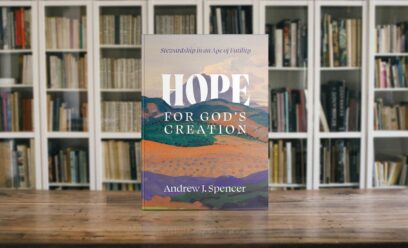This article first appeared in the Summer 2022 edition of the Social Issues Bulletin. Download the whole Bulletin.

‘You can’t do anything about growing old because it’s one of the most natural things in the world, but one thing you can control, though, is how you’ll live once you’re old enough to retire.’ (Adrian J Williams, Retirement – the ultimate retirement planning guide).
Retirement is a subject that most people in ministry cannot avoid. It is something we need to think about and approach in the best way possible. The first part of this two-part article will discuss some of the issues that have to be faced and what the Bible has to say on the matter. In the second part, I will suggest some practical approaches that ought to be followed.
Growing old
There is general negativity in our society, and even in the church, about ageing and that often clouds the approach to retirement. I have often heard people say, ‘I don’t want to grow old’, as though there was an alternative. Of course, what people fear is the losses and limitations which may come as we age. But growing old itself is as natural as the earth revolving on its axis and going around the sun. Most working people in our nation will face retirement from employment at some time, and the same is true of most pastors. It is something to think about very carefully.
The idea of being able to enjoy as many as 20 years, or even more, without having to undertake paid work can have a great attraction. Retiring from paid employment and having control over how to use the time available is an experience that one may be looking forward to enjoying while their health lasts. Having said that, it must also be recognised that there are a significant number of people for whom the thought of retirement is unwelcome and unacceptable. This is not uncommon among pastors and Christian workers. But even if there is no intention to go down that road it is wise to think carefully about it. Sometimes circumstances can change and what was resisted becomes unavoidable.
The idea of retirement at a set age with some financial support is a fairly recent concept. Germany was the first country to introduce such arrangements. In 1889 the government provided support to those over 70 years of age. Life expectancy then was about 50 and so it was a very small proportion of the nation who benefitted. Nowadays a number of different approaches to retirement have developed and they vary considerably in terms of structure, age of commencement and expectation.
A different view of retirement
We need to be clear about exactly what we mean by retirement. As has already been observed, it is a transition point when a person moves from activities and responsibilities that have formed the whole of their life and where much of life was directed in one way or another by other people to having the opportunity to organise life in a more personally directed way. In a number of ways, life changes and new challenges and possibilities begin to present themselves. Often in our culture these new ways of living centre around a very high degree of self-indulgence – ‘I have done my bit, and now I am just going to take it easy and enjoy myself.’ That is a bit of a caricature for many of us, although some really do take that approach at first. Of course, many retirees have better ambitions than that and develop plans which involve family, charitable work or volunteering, and other useful activities, including time spent on leisure and hobbies.
Sensible relaxation and leisure are part of the Bible’s wisdom (Mark 6:31). That is part of the Sabbath principle. Wisdom about the use of time and the importance of caring for oneself is vital, especially as physical and intellectual powers decline. But for Christian people, there has to be something more than a protracted period of profitable activity, and self-indulgence. I say ‘has to be’ because the Christian mindset is built around the concept of service to God and humanity (1 Peter 4:7-10). Indeed this is especially true about being called to leadership in the church of Jesus Christ. It always involves a call to service, and for many people who are in ministry, that call is life-long (1 Peter 5:1-4). But the whole of life is to bring glory to God, and retirement presents new opportunities to engage in seeking to do that.
Our final days have a value and preciousness that the culture in which we live does not generally recognise. According to Proverbs 9:11, God multiplies the days of the godly. In fact, there is an amazing promise found in Psalm 91:16, the Lord says of a person whose determination is to love God ‘with long life I will satisfy him and show him My salvation’. I say amazing promise because this verse is teaching that length of days are designed by God for our benefit so that we may look into and prove the wonder of salvation and work that out in practical ways. That is the radically distinctive view of the Bible. An illustration of this is found in the accounts of Simeon and Anna in Luke 2:25-38. These two elderly saints filled their later days with spiritual activity motivated by the anticipation of the coming of the Messiah. They show us that later life does not mean the end of significance and meaning for our lives. In this light, however we approach retirement it should never be seen as being consigned to some sort of scrapheap nor should it be used as an excuse for self-indulgence.
Your eyes saw my substance, being yet unformed.
And in Your book they all were written,
The days fashioned for me,
When as yet there were none of them. (Psalm 139:16)
That is how the Psalmist views his whole existence. He also saw that every day was designed for him to know the goodness and mercy of God – ‘Surely goodness and mercy shall follow me all the days of my life’ (Psalm 23:6). So what applies to ‘all our days’ must apply equally to our final days, and so our retirement days which precede them. Each retirement day is as valuable and full of potential as the days when we engaged in ministry in a local church or in some missionary/Christian work. The circumstances, activities, and opportunities may be very different but under God, their preciousness and usefulness are no less. This applies even in the experience of physical and/or intellectual limitation, frailty, and disability.
These basic considerations should strongly influence our approach to retirement and significantly distinguish our attitude from that of the culture around us. Our main focus must surely be to use our time in the advancement of the kingdom of Jesus Christ and to glorify God in everything. (For a fuller development of this thinking see Rethinking Retirement by John Piper, published by Crossway).
The Bible and retirement
It is sometimes argued that retirement is scarcely mentioned in the Bible, and that is true if you are talking only about the word. Consequently, those who argue that Christians should never retire quote this fact and verses such as Colossians 4:17, ‘take heed to the ministry … that you may fulfil it’, and Acts 20:24, ‘that I may finish the ministry which I received from the Lord Jesus’. But that approach seems to exclude the fact that spheres of service and circumstances may change while being faithful to and continuing in our calling. On the other hand, if we envisage retirement as meaning ceasing from all forms of ministry and literally ‘putting our feet up’ the Bible never considers that as being an option.
I would suggest that the Bible shows us rewarding and God honouring principles that should direct our approach to retirement. First of all, every part of life is to be useful and fruitful as Ephesians 2:10 and Psalm 92:12-15 both teach. Alongside that ‘good works’ are a part of normal Christian life and testimony and has no age constraint anywhere in the New Testament. So there are examples of godly older people achieving important things for God which abound throughout the Scriptures. If you look carefully there are at least thirty different accounts of older people serving in an effective way. Perhaps amongst the most surprising and beautiful is Jacob in Genesis 47-49. There we find him in a totally transformed physical situation and approaching the end of his life. But in that new situation, we find that he blessed Pharoah twice, then blessed Joseph’s sons in a most remarkable way, and finally blessed his own twelve sons with deep spiritual insight and power. So in his final days, his usefulness can be summed up by acts of blessing to others. It is one illustration of how being useful and later life are married in the Bible’s thinking.
Numbers 8:23-26 contains the only specific reference to retirement in Scripture, and it refers to the work of the Levites. At the age of 50, the Levites ceased their regular functions, but they still had a role which may be viewed as ‘being useful’. After the age of 50, the Levites could continue to support their brethren but not engage in the work of the Tabernacle. Their role changed but they still had responsibilities and opportunities to serve.
It is instructive to note that David changed roles in his last days. This is set out in 1 Chronicles 23:1-2 and the following chapters. Before he died he appointed Solomon as king and took the opportunity to devote himself to the detailed arrangements for the worship in the Temple and for the preparations necessary for building it, including raising the funds. He also organised other aspects of the administration of the nation. In these final days of his life, he was enabled to give to Solomon the detailed plans for building the Temple that he had been given by the Spirit (1 Chronicles 28:12 & 19).
This reflects the whole Bible’s emphasis on work and meaningful activity being part of the dignity of being human (Genesis 1:26-28). The New Testament enforces the role of work in everyone’s life (1 Thessalonians 4:11-12 and 2 Thessalonians 3:6-13). This is vital to developing an understanding of retirement. Whatever form retirement takes there must be areas of service to be pursued which are appropriate to our physical, emotional, and intellectual condition. The roles we fulfil in later years may, and almost certainly will, change as years advance and powers reduce, but though employment may cease meaningful activity is to continue.
In the second part of this thinking on retirement, I explore what this means specifically for pastors and how they are to accept and prepare for retirement. It is a practical piece, addressing many of the implications retiring from full-time ministry brings.
Stay connected with our monthly update
Sign up to receive the latest news from Affinity and our members, delivered straight to your inbox once a month.



